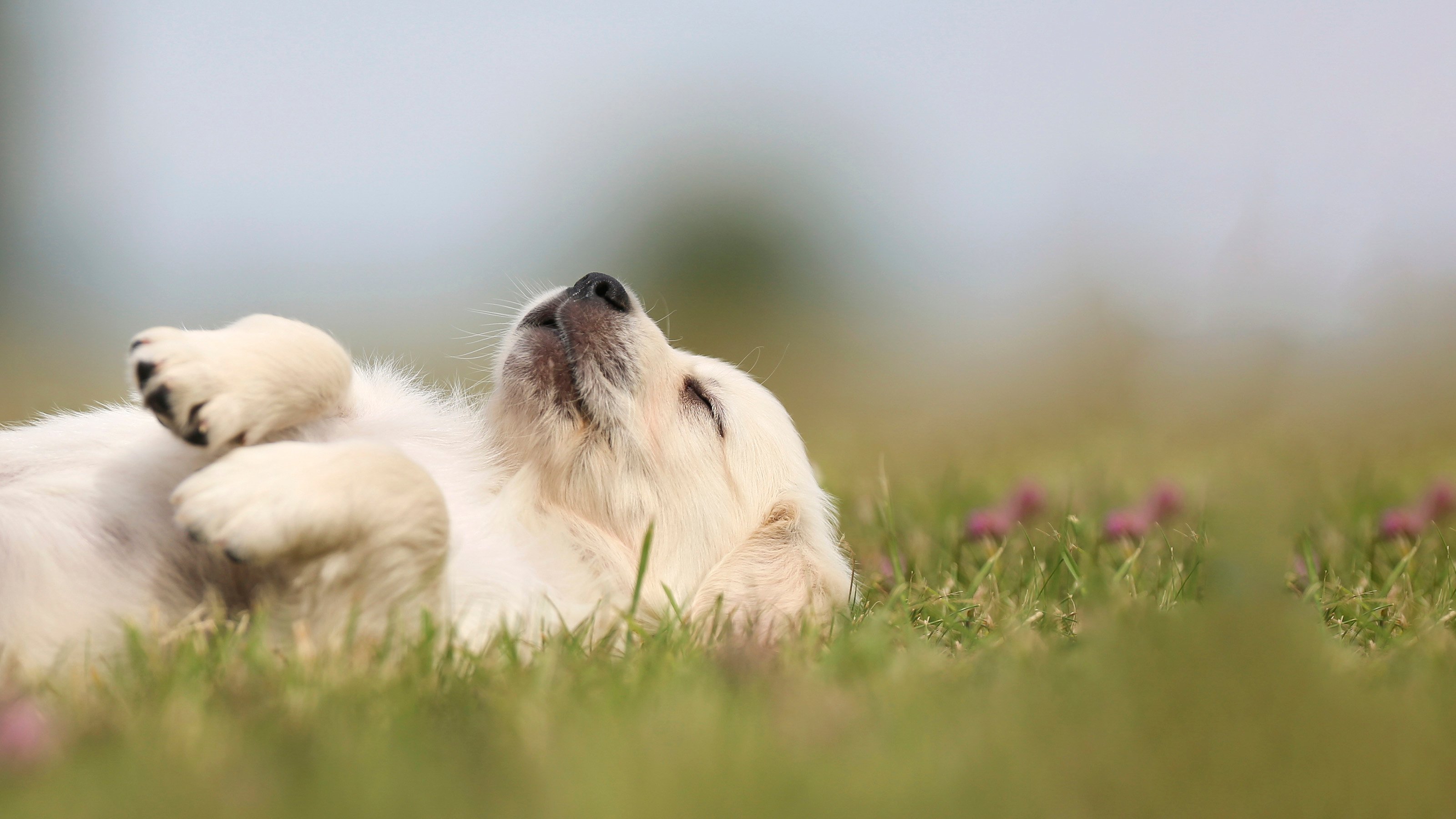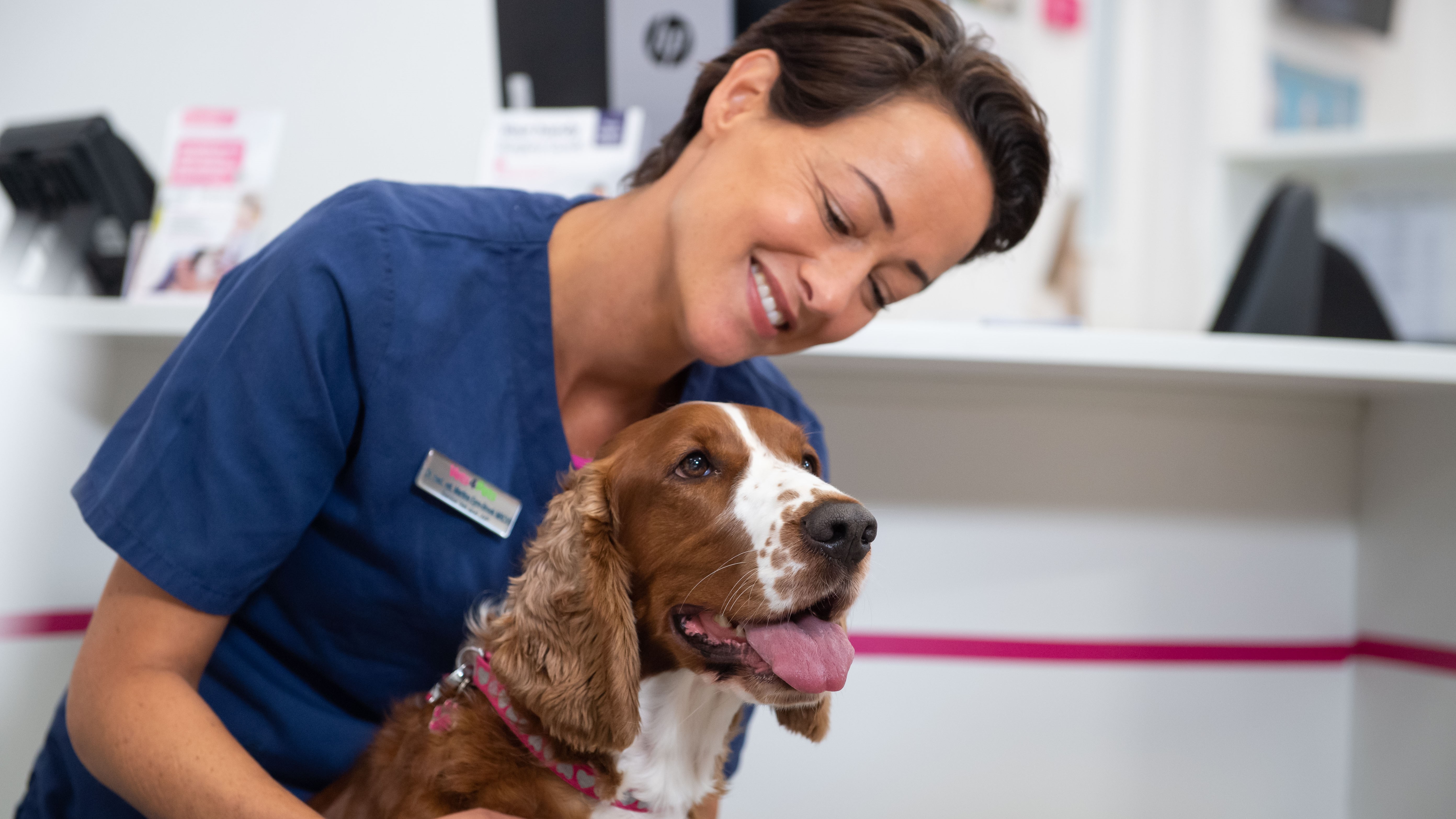
How to play with your puppy properly
Just like human babies, puppies need a lot of rest. It’s important to give them down time as well as exciting play time.
When there’s a new puppy in the house, everyone wants to be part of the fun! Importantly though, everyone also needs to know how to keep play fun and safe – both for puppy and for everyone else!
More about safe play and handling puppies
As your puppy plays, they will use their mouths as well as their paws. This is normal, but puppy teeth are sharp and it’s important your puppy learns early on what they can and cannot munch on!
- Use appropriately sized toys. Your puppy is still a baby and a big ball might be too much for their little jaws! On the flip-side, small item are easily swallowed and can result in surgery to retrieve! Keep to puppy-sized toys to keep them happy, and make sure you get new toys as they grow.
- Don't use your hands. When you're growing up, it's hard to tell the difference between fingers and toys if they are used for the same thing! Making sure play is always with toys and not hands can help stop your puppy from getting confused and can help prevent puppy biting.
- Toys specially designed for teething puppies can be gentler on little mouths. Puppies generally get their adult teeth between 4 and 6 months old, although each puppy is different. Getting your puppy used to tooth brushing early on can also help protect these new gnashers!
- Use toys only. If you don't want your dog to rip up your newspaper, don't use it to tickle him during play time! Now is the time to teach your puppy what they can and can't play with, and using household items like slippers, newspapers and cushions as toys will result in these being regarded as fun and acceptable chew targets.
- Make training fun! Training a puppy shouldn't feel like a chore to either of you. Building training into play, such as teaching fetch and drop it is a great way to puppy parent and you will find drop it very useful with an inquisitive pup around the house!
If you have to pick up your puppy, always make sure they are secure at all times. Puppies can be surprisingly wriggly, especially if they feel insecure, and a fall from height can do serious damage. The best way to do this is to make sure you are supporting their chest and rump – always use two hands when picking up a puppy, unless your puppy is so small that you can support chest and rump with one hand. Even in these circumstances, this means you can use your free hand to keep them stable and close to you, and reassure them they are safe.
Never pick up a puppy by their scruff or tail. Although your pup’s mum will have carried them around by the scruff when they were small, this doesn’t give much support and we also have the advantage of having hands! This means we are much better equipped to safely carry a puppy, especially as they grow.
Young children may find picking up a puppy safely difficult, so make sure children are old enough and understand how and when to pick up your puppy before you let them do so. Training your pup to be ok with being picked up is important as you may find you need to do this through their life, for example to lift them into cars, onto veterinary examination tables or to get them out of a situation.
Being off the ground is not a natural experience for a dog, so it can take some getting used to – don’t rush it, and like with any training, start with only very short periods of time and always reward your puppy for good behaviour.
Getting your puppy used to handling is really important. Not only does it teach them about how to interact with people, it also teaches them what is normal. Food or resource aggression can be a big problem if dogs are not taught from an early age that that do not have to protect their resources, and puppy biting often stems from inappropriate handling early on.
Handling your puppy can also help your vet! Being on a table and having their body inspected is quite an intimidating experience for a puppy, especially in a new place with unfamiliar smells. Having similar experiences at home, where they are popped on the kitchen table (for small dogs and pups) or are on the ground (for bigger dogs) and ‘examined’ can help normalise this experience, especially if it is followed up with lots of praise and treats!
Puppy biting is a commonly reported concern, and can be very worrying, especially in families with children. Puppies explore the world with their mouth much like we use our hands, and they have to learn what is and isn’t ok behaviour.
Health Plans to keep your puppy healthy
At Vets4Pets we offer a range of Health Plans that make essential routine treatments more affordable. You'll save money on things like annual vaccinations, flea and worm treatment and routine health check-ups.

Join our free VIP Puppy club
Join the club for expert advice and tailored offers, including £30 off our Complete Care Health Plans

Puppy & Kitten Advice
Giving your pet the best start in life begins with getting the best expert advice.
